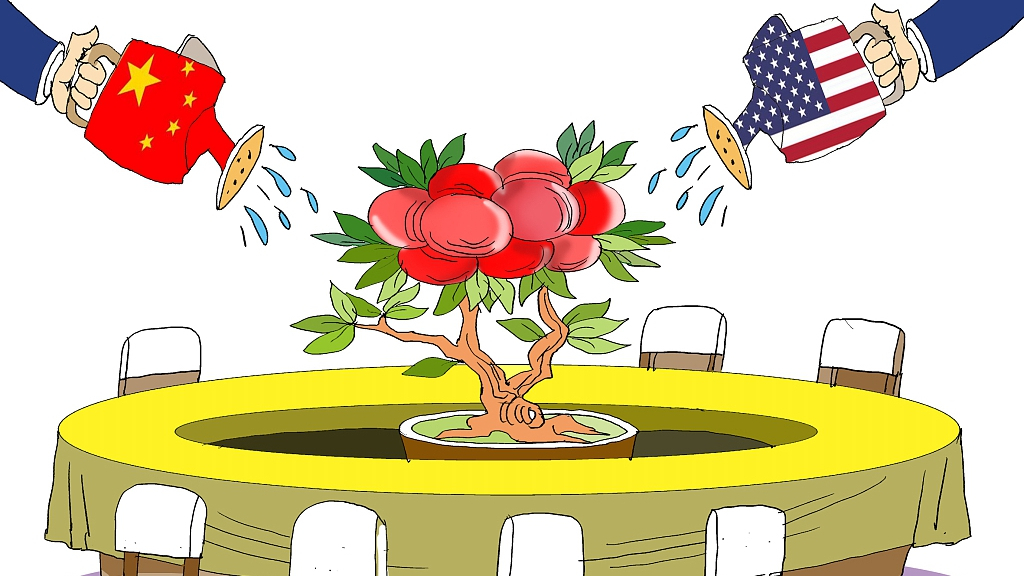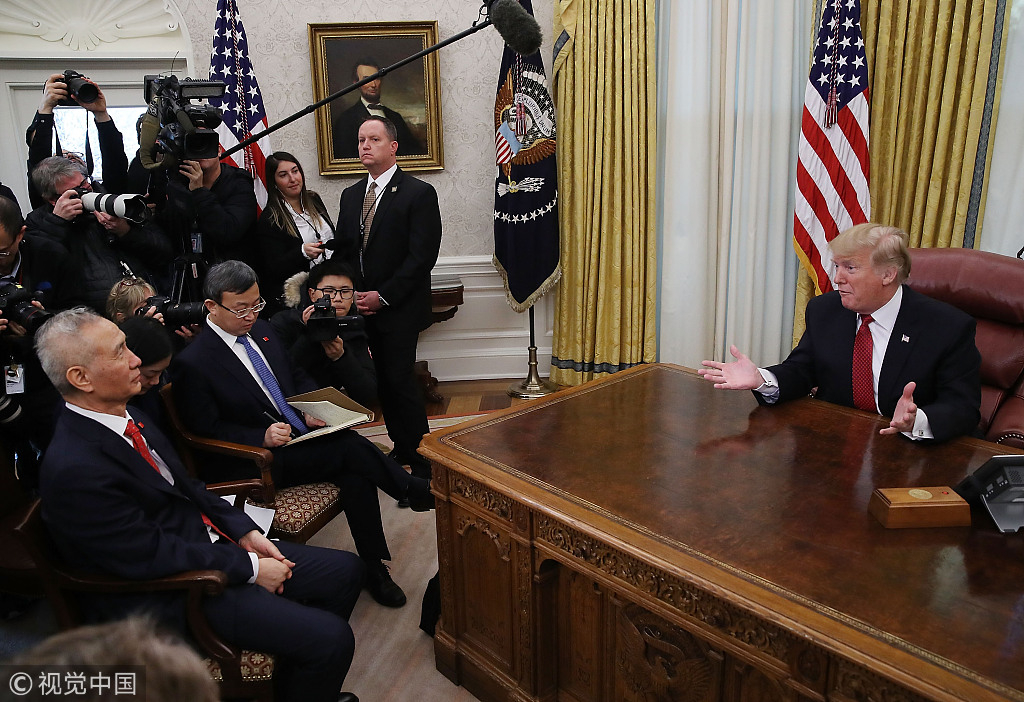
Opinion
20:58, 02-Feb-2019
Opinion: Sino-U.S. trade talks move toward positive direction
Gong Ting

Editor's note: Gong Ting is an assistant research fellow with the China Institute of International Studies. The article reflects the author's opinion, and not necessarily the views of CGTN.
Amid the 90-day negotiation between China and the U.S., the consensus reached by the two heads of state regarding the direction of the bilateral relationship at G20 in Argentina is a very significant driving force of the ongoing negotiation process. Under its guidance, the just-concluded high-level bilateral consultation has achieved important and substantial progress.
The two sides reached an important consensus on promoting bilateral trade balance, and agreed to take effective measures to promote the balanced development of Sino-U.S. trade relations. The U.S. side focuses on the need to reduce the growing trade deficit that it has with China, and the purchase of U.S. products from China's farmers, ranchers, and manufacturers is a critical part of the negotiations.
The Chinese side stated that it will vigorously expand imports of U.S. agricultural products, energy products, industrial manufactured goods and service products, with a view toward meeting the needs of the Chinese people.
On structural issues, the two sides conducted in-depth discussions on their respective concerns, among which the two sides attached great importance to intellectual property protection and technology transfer, and agreed to further strengthen cooperation. The Chinese side believes that creating a fair competitive market environment is in line with China's reform and opening-up, and will actively respond to U.S. concerns. The two sides also exchanged views on specific concerns of the Chinese side, to which the U.S. side indicated that it will seriously respond.

U.S. President Donald Trump speaks during a meeting with Chinese Vice Premier Liu He (L) in the Oval Office at the White House in Washington, D.C., January 31, 2019. /VCG Photo
U.S. President Donald Trump speaks during a meeting with Chinese Vice Premier Liu He (L) in the Oval Office at the White House in Washington, D.C., January 31, 2019. /VCG Photo
Negotiations on structural issues will not be done overnight. It involves the important interests of both parties, and must fully consider the concerns of both sides. One of the substantive developments of this high-level consultation is that the two sides reached partial consensus on structural issues. For the Chinese side, a considerable part of the U.S. demands on relevant issues are consistent with China's need for further reform and opening-up, as well as the vision for pursuing high quality development.
It must be emphasized that both sides need to be considerate of the other side. Issues of divergence should be treated properly. After all, there are great differences in the national conditions, systems, and stages of development between the two sides. To reach consensus requires patience and sincerity.
At the same time, China will not compromise on issues that undermine its core interests. As the largest developing economy, China's internal development is still very unbalanced. The commitment to fulfilling reform and opening-up also needs to fully consider China's actual situation, and needs to proceed step by step.

VCG Photo
VCG Photo
In fact, China is making further and visible progress in deepening reform and opening-up. Recently, the draft of foreign investment law was submitted to the Standing Committee of the National People's Congress for deliberation for the second time. The draft emphasized investment promotion and protection of foreign-invested enterprises, and fair treatment for both domestic and foreign-funded enterprises, contributing to a fairly competitive business environment.
In addition, the Chinese side also indicated that it will take more effective measures to further strengthen comprehensive protection of intellectual property rights in various aspects such as legislation, judicial and administrative law enforcement. Recent progress in the opening up of its financial sector accession is also positive and clear.
Remarkably, the two sides further clarified the timetable and roadmap for next step consultations. They also talked about the establishment of an effective two-way mechanism to ensure the implementation of the agreed upon consensus. All of these aspects will push the negotiations forward in a positive direction.
(If you want to contribute and have specific expertise, please contact us at opinions@cgtn.com.)

SITEMAP
Copyright © 2018 CGTN. Beijing ICP prepared NO.16065310-3
Copyright © 2018 CGTN. Beijing ICP prepared NO.16065310-3